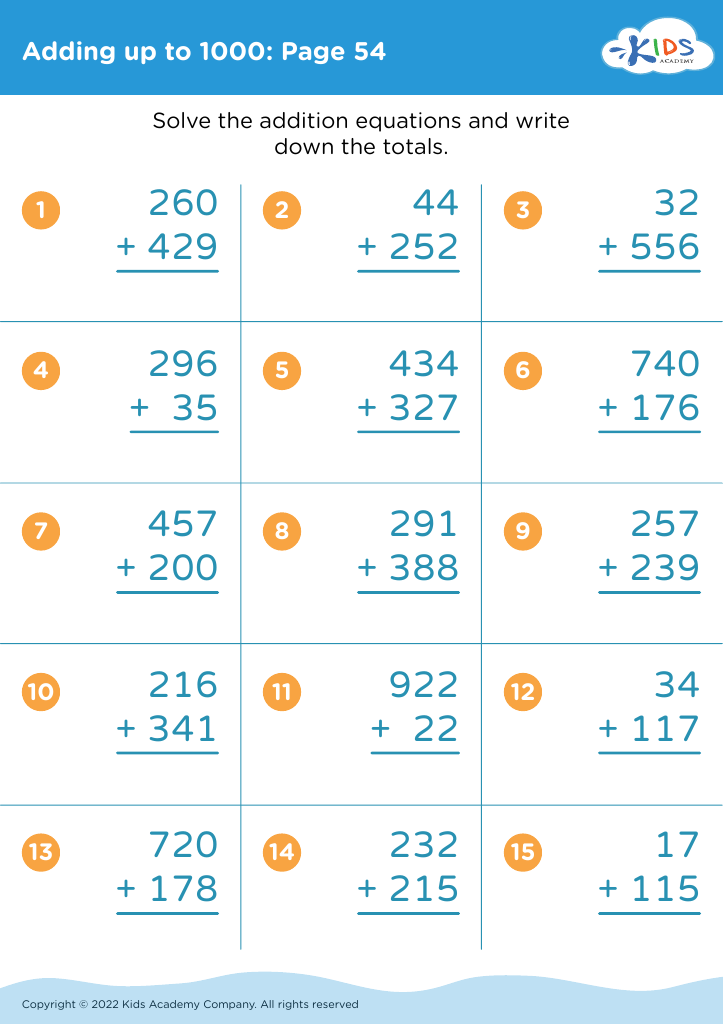Practice subtraction Addition Worksheets for Ages 5-9
5 filtered results
-
From - To
Enhance your child's math skills with our engaging Practice Subtraction Addition Worksheets, designed specifically for ages 5-9. These printable resources offer a fun and interactive way for young learners to master subtraction and addition concepts. With colorful visuals and carefully crafted exercises, children will enjoy building problem-solving abilities while boosting their confidence in math. The worksheets are ideal for home use, classrooms, or homeschooling environments, making them a versatile tool for educators and parents alike. Tailored to meet the developmental needs of early learners, our subtraction addition worksheets pave the way for foundational math proficiency and success in future learning.
Practicing addition and subtraction is essential for children ages 5-9 as it lays the foundation for their mathematical understanding and overall cognitive development. During this critical period, children's brains are highly adaptable, allowing them to grasp concepts that will be crucial for future learning in math and beyond. Mastery of these basic operations not only enhances their problem-solving skills but also boosts their confidence in handling numbers.
For parents and teachers, engaging children in these activities promotes a positive attitude towards mathematics, alleviating anxiety that may develop later. Consistent practice helps solidify understanding, allowing children to tackle more complex mathematical concepts with ease as they progress through school. Furthermore, learning these skills promotes necessary cognitive abilities, such as critical thinking and logical reasoning.
Incorporating various fun and interactive methods, such as games or hands-on activities, makes learning enjoyable, encouraging children to practice without it feeling like a chore. Ultimately, fostering strong skills in addition and subtraction during these formative years equips children with the tools they need for success in academic endeavors and everyday life, establishing a strong foundation for lifelong learning.














.jpg)










